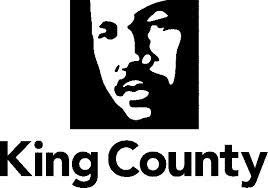
Case Study: Seattle Theatre Group—Dance for Parkinson’s and Aileycamp
Case Study: Seattle Theatre Group—Dance for Parkinson's and Aileycamp
Founded: 1992 (as Seattle Landmark Association); 2009 (Dance for Parkinson’s); 2016 (AileyCamp)
Headquartered: 911 Pine St, Seattle, WA 98101
Program Locations: Dance for Parkinson’s: Des Moines, Kirkland, Mercer Island, Seattle, Lynwood
AileyCamp: Tukwila Community Center
2016 Operating Expenses: $43.67m (STG)
Shawn Roberts, Program Manager at the Seattle Theater Group (STG), has a “personal mission of making dance accessible for all people.” As she puts it, “if you have a desire to dance, you should have a right to dance.” That passion stems from being a dancer educator for decades, and a witness to the myriad ways dance can improve a person’s quality of life no matter who you are. The programs she directs at STG, Dance for Parkinson’s and AileyCamp, are just two examples of her credo.
Every Monday afternoon, adults with Parkinson’s Disease enter the Des Moines Senior Center for a dance class. Some may be in early stages, experiencing only slight tremors or changes in posture. Others may be struggling with balance, arriving in wheelchairs, and requiring help to get dressed. The instructor cues the musician to begin, starting out with some chair exercises, and by the end of the 90 minutes many participants are out of their chairs, waltzing across the room and sharing smiles. Designed by the Mark Morris Dance Group, the curriculum began with dance, not the disease. Students perform tondues, relevés, and pliés, just like any other basic ballet class. Seventeen years after the founding of the nationally acclaimed model, 38 peer-reviewed studies and demand-driven expansion to 250 communities in 24 countries confirms what students and caregivers discover in the class. The combination of movement to music creates the flexibility, confidence, and strength that Parkinson’s patients need and struggle to find elsewhere.
The STG AileyCamp journey, designed by the Alvin Ailey American Dance Theater and launched in Seattle in 2016, begins with a tour of 16 Title I middle schools spanning from Seattle to Tacoma – schools with the highest proportion of students receiving free and reduced-price lunches. Over 100 students apply for the 65 to 70 slots available at the Tukwila Community Center each summer. They each get personal interviews, as STG is looking for additional risk factors, finding youth who most need the support of the AileyCamp community. While their peers are staying cool playing video games or lounging at friends’ houses, accepted students attend the camp for six weeks, Monday through Friday 8:30 a.m. to 3:30 p.m. Cell phones are checked at the door, and the 11-14-year olds are fully immersed in rigorous and world-class instruction in ballet, jazz, African, and percussive dance. You might think that this level of commitment expects too much of a middle schooler, but of 66 enrolled students in 2017, 64 (97%) graduated. “I love that these are kids that say yes to this in the summer. These middle schoolers are interested in having this growth in their lives. You might have all this stuff going on, but we can make changes at any moment in our lives,” says Roberts.
Social Impact: Advancing whole-person wellness through dance
Dance involves the whole person. Of course, in a physical sense, the movements can encompass every muscle and fiber in the body. Also, in a mental and emotional sense, the discipline of dance has a way of tapping into a deeper level of consciousness. Dance for Parkinson’s students become absorbed in the music and rhythm, and their caregivers marvel at seeing their companions move in ways they thought were lost to the disease. AileyCamp students find a powerful expressive outlet for personal struggles as well as more common adolescent struggles, coupled with a supportive environment. Roberts explains the design, “Dance people are often told ‘Check your stuff at the door,’ but we are not saying that. Middle schoolers have questions and you can’t just dance through that. Sometimes these are problems and challenges that many adults have never faced. [With dance] you are learning self-discipline, creativity, and personal development that gets to those parts of a middle schooler’s life.”
While there are soloists, dance is more often about moving in relation to other people, perhaps a single partner, or an entire corps. The social and dynamic aspects of moving with people, it turns out, may be key to how it opens other connections in the brain. A recent study of aging demonstrated that social isolation costs the Medicare program $6.7 billion annually. For an aging person, isolation has a negative health impact equivalent to smoking 15 cigarettes a day. Whether from embarrassment or physical barriers, isolation is known to accelerate the decline of Parkinson’s patients. Not only does Dance for Parkinson’s create a venue for students to assemble and socialize, the participation in dance is what heals some of the most crucial social connections. For example, dance has the power to transform weary pairs of caregivers and patients into romantic couples. In one story, a 70-year old woman performing improvisational dance by rolling on the floor as the class guessed what she was doing. “She finally told us she was pretending to play with her grandchildren. I looked over at her daughter, and she just had tears in her eyes. I asked, ‘What’s wrong?’ She said ‘I’m so grateful, I have never seen my mom, even before Parkinson’s Disease, be so creative and so expressive. It is a joy to see her grow that way.”
AileyCamp, too, leverages the power of dance for middle schoolers who may be facing social and emotional hurdles. There is discipline involved in showing up for camp at 8:30 a.m. every morning and the camp takes several measures to ensure students are totally present for the experience with other campers. Dance is an incredible way for students to become part of something greater than themselves, an interdependent organism that requires self-control, teamwork, and communication. The vision for AileyCamp community extends beyond six weeks, recognizing the transformation must be nurtured all the way through college, and that can be a long road for these teens. The AileyCamp Alumni program includes a weekend winter master classes and free tickets to the Paramount Theatre. They also partner with the College Success Foundation, an organization that knows going to college can have more to do with social norms and personal expectations than academics. As Roberts puts it, “It takes six weeks to root and develop habits, but we have to keep inviting them in and offering and growing so they can keep going.”
Sponsors
Social Impact Study Community Conversations Sponsors
![]()
![]()






